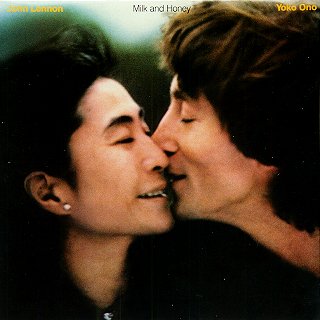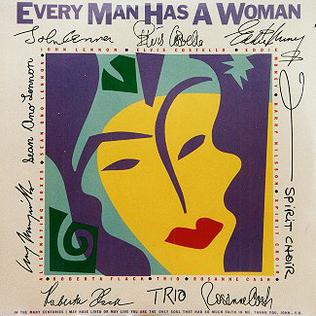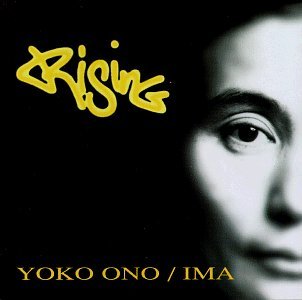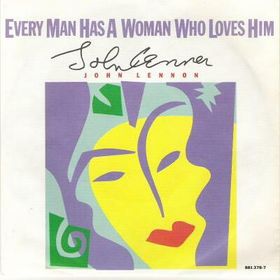
Double Fantasy is the fifth studio album by John Lennon and Yoko Ono, and the final one to feature Lennon before his death. Released in November 1980 on Geffen Records, the album marked Lennon's return to recording music full-time, following his five-year hiatus to raise his son Sean. Recording sessions took place at the Hit Factory in New York City between August and October 1980. The final album features songs from both Lennon and Ono, largely alternating between the two in its track listing. Other tracks recorded by Lennon from the sessions were compiled by Ono for release on Milk and Honey in 1984.

"Cold Turkey" is a song written by English singer-songwriter John Lennon, released as a single in 1969 by the Plastic Ono Band on Apple Records, catalogue Apples 1001 in the United Kingdom, Apple 1813 in the United States. It is the second solo single issued by Lennon and it peaked at number 30 on the Billboard Hot 100 and number 14 on the UK Singles Chart. The song's first appearance on an album was Live Peace in Toronto 1969 where the song had been performed live on 13 September 1969 with Lennon reading the lyrics off a clip-board.

Milk and Honey is the sixth and final studio album by John Lennon and Yoko Ono, released in January 1984, three years after Lennon’s murder. It is Lennon's eighth and final album, and the first posthumous release of new Lennon music, having been recorded in the last months of his life during and following the sessions for his 1980 album Double Fantasy. It was assembled by Yoko Ono in association with the Geffen label.

It's Alright (I See Rainbows) is the sixth solo album by Yoko Ono, and her second release after the murder of husband John Lennon. As a variation of a theme concerning its predecessor, the back cover features a transparent image of Lennon in a then-contemporary photo of Yoko and Sean, depicted in Central Park. Released in 1982, all songs were written, composed, arranged, produced, and sung by Ono. It charted at #98 in the US.

Onobox is a 1992 comprehensive 6-disc collection of Yoko Ono's work from 1968 to 1985. The discs are grouped by era and theme. Disc one centers around the albums Fly and Yoko Ono/Plastic Ono Band, while Disc two features nearly the entirety of Approximately Infinite Universe in a different running order and most of the tracks remixed exclusively for this boxed set. Disc three features the entire Feeling the Space project, which was originally conceived and recorded as a double album before being edited down, while disc six is the previously unreleased 1974 album A Story, which was later reissued separately with an expanded track listing, along with the rest of Ono's back catalogue.

Every Man Has a Woman is a tribute album to Yoko Ono for her 50th birthday. It contains covers of her songs from the albums Approximately Infinite Universe (1973), Double Fantasy (1980), Season of Glass (1981), and It's Alright (1982). The album was purportedly one of John Lennon's projects, but he died before he could see its completion. The liner notes for the vinyl LP feature an essay by Ono entitled "A Crystal Ball".

Season of Glass is the fifth studio album by Yoko Ono, her first solo recording after the murder of her husband John Lennon. Season of Glass, released in 1981, reached number 49 on the US Billboard 200 albums chart, making it Ono's highest-charting solo album to date.

A Story is an album by Yoko Ono, recorded in 1974, during the "lost weekend" sessions in which John Lennon produced Walls and Bridges. It was unreleased until the 1992 box set Onobox, which featured material from A Story on disc six. It was only properly released as an individual album 23 years later in 1997, with the reissuing of Ono's back catalogue by Rykodisc. The reissue added three bonus tracks, including home demos and a live recording from the Starpeace tour.

Yoko Ono/Plastic Ono Band is the debut solo studio album by Japanese artist and musician Yoko Ono, released on Apple Records in December 1970 alongside her husband's album John Lennon/Plastic Ono Band. Ono's album features her vocal improvisations against backing by the Plastic Ono Band, with the exception of the track "AOS", which is backed by the Ornette Coleman Quartet.

"Walking on Thin Ice" is a song by Yoko Ono, released in 1981. She and John Lennon concluded the recording of the song on December 8, 1980. It was upon their return from the recording studio to The Dakota that Lennon was murdered by Mark David Chapman. Lennon was clutching a tape of a final mix of the song before it was mastered when he was shot.

Rising is a 1995 album by avant-garde artist Yoko Ono. Released on 7 November by Capitol Records, it features the backing band IMA, which included Ono's son Sean Ono Lennon, Timo Ellis, and Sam Koppelman. It was her first album of new material since 1985's Starpeace. The album has sold 11,000 copies in the U.S. to date.

Fly is the second album by Yoko Ono, released in 1971. A double album, it was co-produced by Ono and John Lennon. It peaked at No. 199 on the US charts.

"No, No, No" is a song by Yoko Ono from her 1981 album Season of Glass. The song is one of the most dramatic tracks on the album to address her husband John Lennon's murder. The song begins with the sound of four gunshots and Ono screaming. The single version was longer than the album version and included a spoken word section of Sean Ono-Lennon recalling a story his father told him which was previously included on the album track "Even When You're Far Away". The B-side was "Will You Touch Me". The 12" version also contained "I Don't Know Why" and "She Gets Down on Her Knees".

Approximately Infinite Universe is the third solo album by Yoko Ono, released in early 1973 on Apple Records. A double album, it represents a departure from the experimental avant garde rock of her first two albums towards a more conventional pop/rock sound, while also dabbling in feminist rock. It peaked at number 193 in the United States. The 1997 CD reissue on Rykodisc added two acoustic demos of songs from this era, that were later released on 1981's Season of Glass. It was released again by Rykodisc in 2007.

Starpeace is a 1985 concept album by Yoko Ono, designed to spread a message of peace around the world as an opposition to Ronald Reagan's "Star Wars" missile defense system. As with most Ono albums, it did not chart extensively but the single release of "Hell in Paradise" reached #16 on the US dance charts. The album was subtitled An Earth Play for Sun and Air in the booklet and on the disc.

"Every Man Has a Woman Who Loves Him" is a song by Yoko Ono from the album Double Fantasy with John Lennon. Other versions were released, including one released as a single where Ono's voice was removed, leaving what had been Lennon's backing vocal as the primary vocal.

"Move on Fast" is a song by Yoko Ono, originally released in 1972 on the album Approximately Infinite Universe, and on the B-side to the single "Now or Never". The song was later included on Ono's compilation album Onobox.

"Give Me Something" is a song by Yoko Ono, originally released in 1980 on John Lennon and Ono's duet album Double Fantasy. The song appeared in Ono's off-Broadway musical New York Rock and her compilation albums Walking on Thin Ice and Onobox. In 2010, the Junior Boys remix of the song was released as a free download on MySpace Music and RCRD LBL.

"Midsummer New York" is a song written by Yoko Ono that was released as the opening song of her 1971 album Fly and also as the b-side of the single "Mrs. Lennon."

Japanese multimedia artist, singer and songwriter Yoko Ono has released 14 studio albums, eight collaborative albums, and 40 singles as a lead artist. Married to English singer-songwriter and the Beatles member John Lennon until his murder in 1980, she has contributed several B-sides to his singles from late 1960s to the 1980s. Ono released her debut studio album Yoko Ono/Plastic Ono Band in December 1970, faring poorly in the United States. Similar moderate success was achieved with her follow-up records Fly (1971) and Approximately Infinite Universe (1973).




















